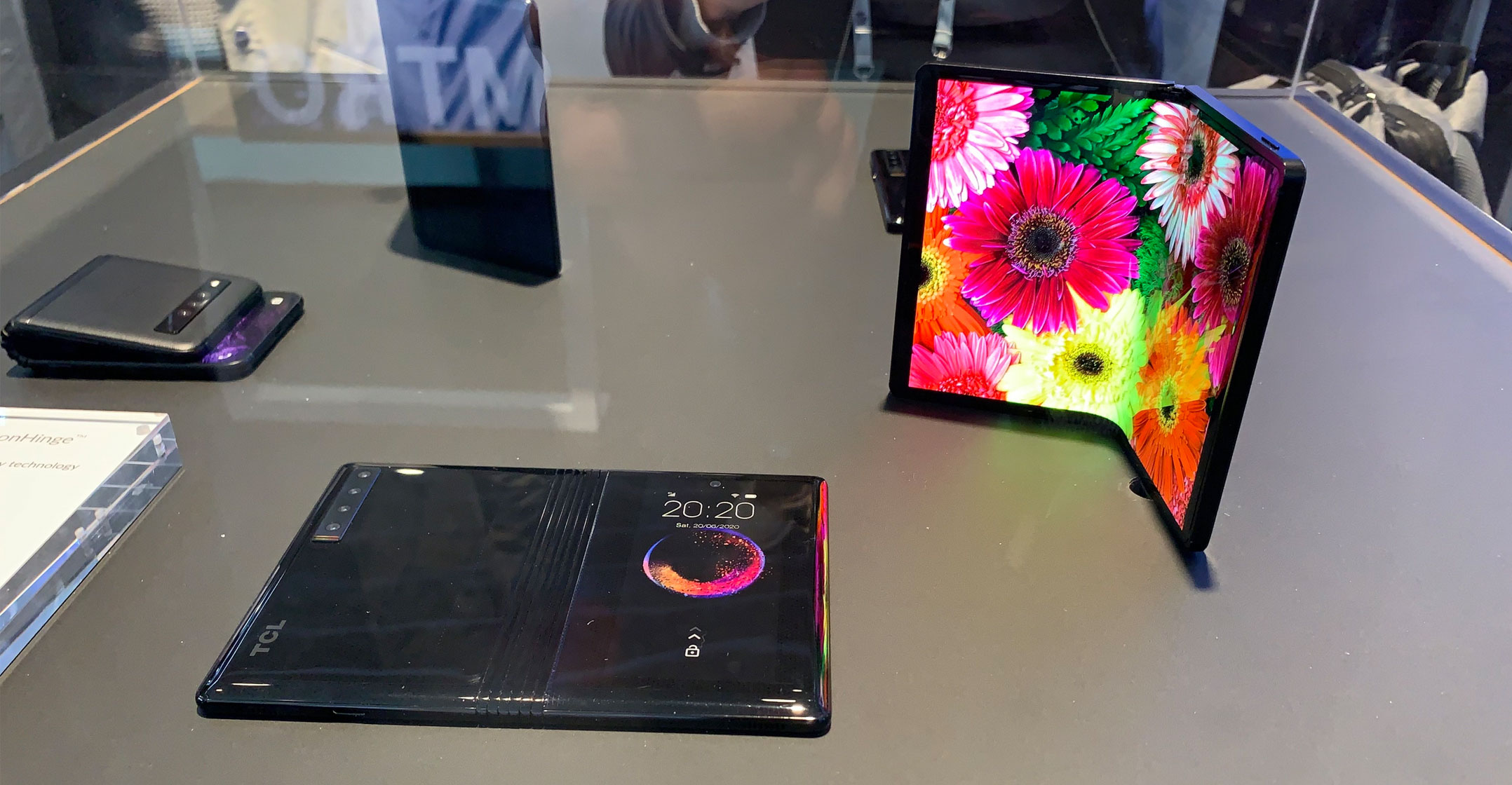 Chinese firm TCL Communication has unveiled its own flexible display as it looks to offer an alternative to the new foldable phones from Huawei and Samsung.
Chinese firm TCL Communication has unveiled its own flexible display as it looks to offer an alternative to the new foldable phones from Huawei and Samsung.
The technology company revealed its patented DragonHinge technology, which it says it will use on flexible display mobile displays in the future. Concept products are on show at the company’s booth at Mobile World Congress in Barcelona.
Much like those from Samsung and Huawei, the TCL offering includes a large display phone which can be folded and unfolded.
Peter Lee, TCL’s GM for global sales and marketing, said the company was not interested in being the first to market with a foldable device, but would instead look to work on solving the issues around such products.
“Together with the support of our sister company, CSOT, we’re showing that TCL can be an innovator and leader in the mobile device market of the future,” he said. “When we look at the potential of our flexible device portfolio, we’re obviously very excited about what we’ll be bringing to market down the road.
“However, we’re not in a race to be the first because we feel it is more responsible to take a patient, thoughtful approach to not only solve hardware challenges, but also work with our partners on software solutions to ensure we deliver a meaningful user experience.”
On Sunday, Huawei confirmed it will launch its folding Mate X device later this year, while last week Samsung unveiled its Galaxy Fold.
Number of challenges
TCL’s Shane Lee said there were a number of challenges still to be solved with folding devices. “When we look at the practical application of flexible display and foldable mobile devices, there are really three challenges that need to be overcome: the flexible Amoled display itself, a durable mechanical housing, and of course the software that can seamlessly adapt to these new form factors,” he said.
“Through TCL’s vertical integration with CSOT, we have conquered many of the challenges that come with flexible displays; and now with the announcement of DragonHinge, we’re able to show the world how we’ll overcome the mechanical housing challenges that must be solved in order to support these new foldable form factors.
“We now have a hardware solution to build from, freeing us up to tackle the unique software experiences this new technology enables, and how it all ties in to the larger connected ecosystem as we prepare to launch our first foldable device next year.”




